Forest Resistance & Irregular Forest Stands – With a Focus on Wind Resistance
With Barry Gardiner
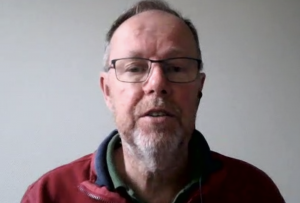 Following our most recent successful webinar we have now made a recording available on YouTube for anyone that missed it or would like to revisit: VIEW NOW ON YOUTUBE
Following our most recent successful webinar we have now made a recording available on YouTube for anyone that missed it or would like to revisit: VIEW NOW ON YOUTUBE
The forests of Europe are under greater threat than ever because of the rapidly changing climate. The result is increasing levels of damage and disturbance with drought, bark beetle attacks, fire, and wind damage all increasing. In addition forest areas previously little touched by particular types of damage agent are now being affected. The conclusion is that the management systems that have worked well in the past are potentially no longer ideal, and we need to utilise management systems that are both resistant and resilient to current and new threats. In this seminar the benefits of forests with a mixture of tree sizes and species in resisting wind damage will be discussed and results presented from field and wind tunnel studies.
Barry Gardiner Biography
Barry Gardiner is a senior researcher at the Institut Européen de la Forêt Cultivée (IEFC) in France, a researcher at the University of Freiburg, German, and an honorary research fellow at Forest Research. He has a particular interest in different abiotic risks to forests. His research focus has been primarily on wind and snow damage to forests, and he developed a forest wind/snow risk model that has been adapted for use in many countries. From 1987 to 2011 he worked at Forest Research in Scotland on wind risk to forests and the influence of forest management on timber quality. From 2011 to 2015 he worked as a Senior Scientist at INRA Bordeaux on a 4-year scientific package entitled “Wind Damage to Forests in a Changing Climate: Impacts and Mitigation” and from 2016 to 2019 he worked as a senior researcher at the EFI Planted Forests Facility. He currently is working on various projects focused on multiple risks to forests and how to incorporate risk management into forest management practice. He is Associate Editor of Annals of Forest Science and Frontiers in Forests and Global Change, and Coordinator of IUFRO Group 8.03.06 “Impact of wind on forests”. He is an author on more than 100 scientific papers and has edited 3 books. He was awarded Docteur Honoris Causa de l’Université Laval de Québec in June 2016.
Please contact Michelle at administrator@ccfg.org.uk if you have any questions.
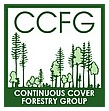



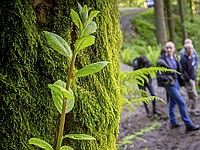
 Following our most recent successful webinar we have now made a recording available on YouTube for anyone that missed it or would like to revisit:
Following our most recent successful webinar we have now made a recording available on YouTube for anyone that missed it or would like to revisit: 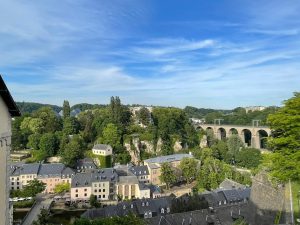 Foresters from across the world convened in Luxembourg this week for the 2022 Annual Meeting of Pro Silva, the organisation which promotes close-to-nature-forestry (CTNF) across Europe. This three-day event had been postponed twice due to the COVID-19 pandemic, but this year’s agenda was the most comprehensive yet, hosted by Pro Silva Luxembourg.
Foresters from across the world convened in Luxembourg this week for the 2022 Annual Meeting of Pro Silva, the organisation which promotes close-to-nature-forestry (CTNF) across Europe. This three-day event had been postponed twice due to the COVID-19 pandemic, but this year’s agenda was the most comprehensive yet, hosted by Pro Silva Luxembourg.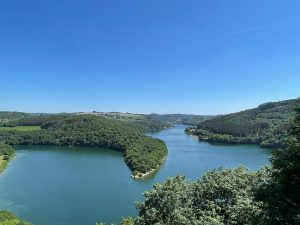
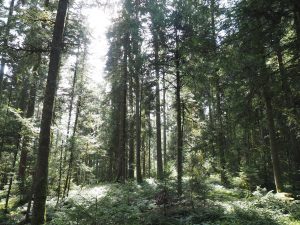 “At long last, Pro Silva members will come together this week to discuss the unprecedented issues and opportunities we are facing as owners and managers of European forests. We are extremely grateful to Pro Silva Luxembourg for their generous hosting of our 25th Annual Meeting, with an extensive programme exploring the themes of urban forestry, forest management and hydrology and the reconciliation of forestry, nature conservation and tourism. In 2017, at the Annual Meeting in Sibiu, Romania, we created the slogan ‘Transition to Transmission’ as a development task for Pro Silva looking forward. And now in Luxembourg in 2022, the main topic for discussion will be how Pro Silva can improve its function as a hub for the dissemination of science and evidence in close-to-nature forest management, which has been accumulated over 30 years since its inception in Slovenia in 1989” – Eckart Senitza, Chairman of Pro Silva.
“At long last, Pro Silva members will come together this week to discuss the unprecedented issues and opportunities we are facing as owners and managers of European forests. We are extremely grateful to Pro Silva Luxembourg for their generous hosting of our 25th Annual Meeting, with an extensive programme exploring the themes of urban forestry, forest management and hydrology and the reconciliation of forestry, nature conservation and tourism. In 2017, at the Annual Meeting in Sibiu, Romania, we created the slogan ‘Transition to Transmission’ as a development task for Pro Silva looking forward. And now in Luxembourg in 2022, the main topic for discussion will be how Pro Silva can improve its function as a hub for the dissemination of science and evidence in close-to-nature forest management, which has been accumulated over 30 years since its inception in Slovenia in 1989” – Eckart Senitza, Chairman of Pro Silva.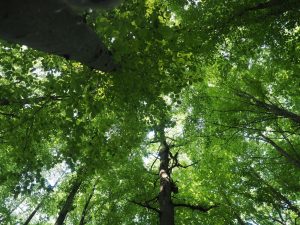 From the boreal pine forests of Northern Scandinavia to the Pyrenean oak woods of Spain and Portugal, we already have the experience in how to transform European forests to a more resilient state. The pressing task now is how to effectively communicate and demonstrate this knowledge base so that policymakers, forest owners, forest managers, students and even farmers across Europe are empowered to utilise their forest resource and maintain their vitality in the process.
From the boreal pine forests of Northern Scandinavia to the Pyrenean oak woods of Spain and Portugal, we already have the experience in how to transform European forests to a more resilient state. The pressing task now is how to effectively communicate and demonstrate this knowledge base so that policymakers, forest owners, forest managers, students and even farmers across Europe are empowered to utilise their forest resource and maintain their vitality in the process.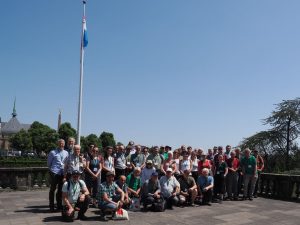
 Following our most recent successful webinar we have now made a recording available on YouTube for anyone that missed it or would like to revisit:
Following our most recent successful webinar we have now made a recording available on YouTube for anyone that missed it or would like to revisit: 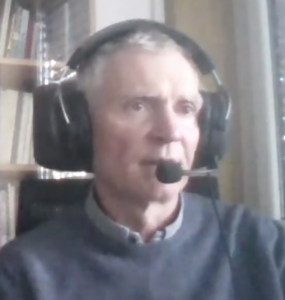 Following our most recent successful webinar we have now made a recording available on YouTube for anyone that missed it or would like to revisit:
Following our most recent successful webinar we have now made a recording available on YouTube for anyone that missed it or would like to revisit: 